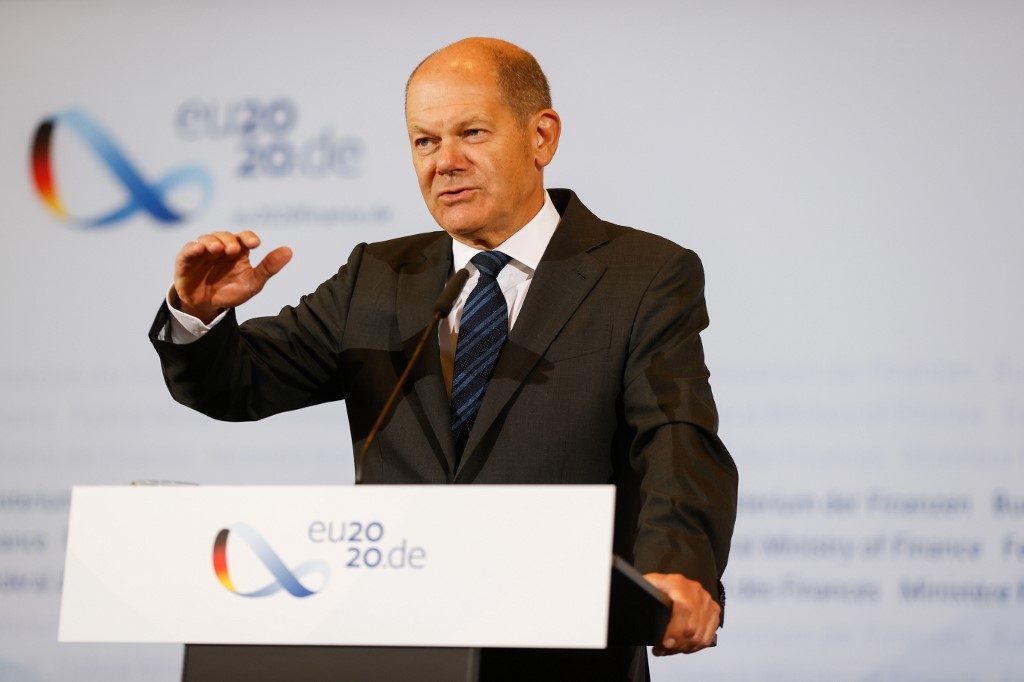SUMMARY
This is AI generated summarization, which may have errors. For context, always refer to the full article.

Germany will see a massive drop in tax revenue this year and next due to the impact of the coronavirus and won’t return to pre-pandemic federal intake until 2023, Finance Minister Olaf Scholz said on Thursday, September 10.
Scholz told reporters that Germany, which often sees itself as the eurozone’s star pupil on fiscal discipline, would be forced to take on new debt again next year before returning to the path of balanced budgets the following year.
Europe’s top economy will take in 275 billion euros ($327 billion) in federal tax revenues in 2020, down from 329 billion euros last year, Scholz said.
That amounts to nearly 54 billion euros less tax revenue than in 2019, and the shortfall will total 82 billion euros when taking combined federal, state, and local tax income into account.
In 2021, the federal government expects to collect 34 billion euros less than before the pandemic, and 15 billion euros less in 2022.
States and local governments are expected to return to pre-pandemic income levels by 2021.
‘Better than we feared’
Scholz, a Social Democrat who will run to succeed Angela Merkel as German chancellor next year, said the figures were less catastrophic than predicted given the government’s new growth projections announced last week.
They indicated that after its deepest post-war recession, the worst was over for the German economy.
“At the moment a lot points to things improving,” he said. “The tax revenue projections for this year are better than we feared.”
But he warned against complacency given the unpredictable nature of the outbreak, which forced a shutdown this spring that took a heavy economic toll.
“The pandemic continues. No one wrote a playbook for such a crisis,” he said. The impact of the pandemic “will keep us occupied well into next year.”
Despite the relative tax income shortfall, Scholz said he was hopeful the German government could return by 2022 to its “black zero” mantra of incurring no fresh debt, to avoid future fiscal trouble in the aging nation.
Scholz was quoting tax estimates calculated twice a year by a working group that includes experts from federal and state governments, the central bank, statistics office, and research institutes.
But due to the coronavirus crisis, an extra meeting was called to assess its fiscal impact. – Rappler.com
Add a comment
How does this make you feel?


![[Time Trowel] Evolution and the sneakiness of COVID](https://www.rappler.com/tachyon/2024/02/tl-evolution-covid.jpg?resize=257%2C257&crop=455px%2C0px%2C1080px%2C1080px)







There are no comments yet. Add your comment to start the conversation.